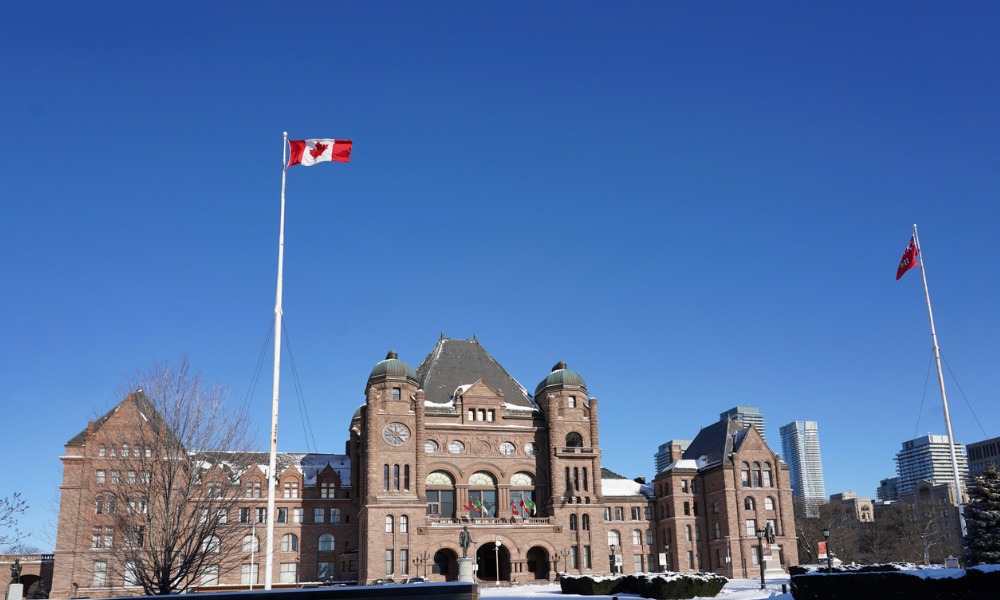We should heed the judiciary's warning: It will erode public confidence in the justice system

Last month the Toronto Star reported that the Ford government was set to “assume complete control” over selecting the next chief justice of the Ontario Court of Justice.
In the past, revelations like Attorney General Doug Downey’s plan to plant his meaty thumb firmly on the scales of justice would be a one-way ticket to the backbench. Now it seems politically acceptable to monkey with the justice system.
Justin Trudeau skated through the SNC scandal, Alberta Premier Danielle Smith reportedly pressured prosecutors to drop COVID charges, and Downy is again playing politics with Ontario’s judiciary.
Historically, although the provincial government can appoint the chief justice, they did so with the input of the outgoing chief justice, who would solicit applications, interview candidates, conduct discrete inquiries, and make recommendations to the government.
This process acted as a firewall to safeguard judicial independence. But now Downey wants judges to apply directly to him. Downey and Downey alone will control the secret process.
The problem is not just one of a process that risks judicial independence, but given the Ford government’s troubled history of partisan appointments, it’s a problem of optics.
After promising to end the partisan appointment gravy train, Ford has stacked Ontario’s administrative tribunals with plumb patronage appointments.
And remember when the premier handpicked long-time Ford family friend Ron Taverner as the next Ontario Provincial Police commissioner? The only problem was that Taverner was not qualified for the job because his rank was too low. Ford’s solution was to water down the job requirements.
Or when Doug Ford’s chief of staff, Dean French, was forced to resign in the wake of damning reports of patronage appointments, like long-time Dean French friend Andrew Suboch, who Ford appointed as chairman of Ontario’s Justices of the Peace Appointment Advisory Committee?
Downey has long been obsessed with consolidating power to appoint judges — qualifications be dammed. And the whispered rumours in Ontario’s legal trenches were of a growing frustration because Downey and Ford could not appoint their picks to the bench.
In an appearance on TVO’s The Agenda, Downey said he wanted to be able to pick judges who reflect the same values he has.
So, it was no surprise that the Ford government passed legislation to change the composition of the appointment committees and the rules governing judicial appointments.
Ford first amended the Justice of the Peace Act as part of the COVID-19 Economic Recovery Act. Not even the most disingenuous Ford puppet could credibly explain what the appointment of JPs had to do with pandemic recovery.
And then he slipped changes to the judicial appointment process into the Accelerating Access to Justice Act, which also billed as a necessary response to the emergence of COVID-19.
These changes, fixing an unbroken system, were a thinly veiled trojan horse to allow Downey and Ford to select their preferred judicial candidates more easily – and now they are at it again.
The appointment of a chief justice is no minor matter. Indeed, Downey himself calls it “perhaps the single most important appointment I will be entrusted with during my tenure.”
So why change a system that has produced excellent results and has the public’s confidence?
The chief justice does not only have the power to direct and supervise the sittings of the Ontario Court of Justice and the assignment of its judicial duties. They also have a direct role in appointing judicial appointment committee members who recommend future appointments.
Maybe all of this is as simple as Downey wanting the power to install a chief justice more easily “who reflects the same values he has.”
In a letter to outgoing chief justice Lise Maisonneuve, Justice Julie Bourgeois, president of the Association of Ontario Judges, highlighted concerns that the new process will erode public confidence in the administration of justice because of this incursion into judicial independence. Bourgeois said, “What strikes us as an aberration … is the suggestion that judges ignore the separation of powers and their ethical obligations and communicate directly with the Attorney-General.”
Downey would be wise to pay attention to Justice Bourgeois’ warnings.
Given the Ford government’s history of partisan appointments and obsession with judicial appointments, how can the public trust him to have complete control over the selection of the next chief justice?











